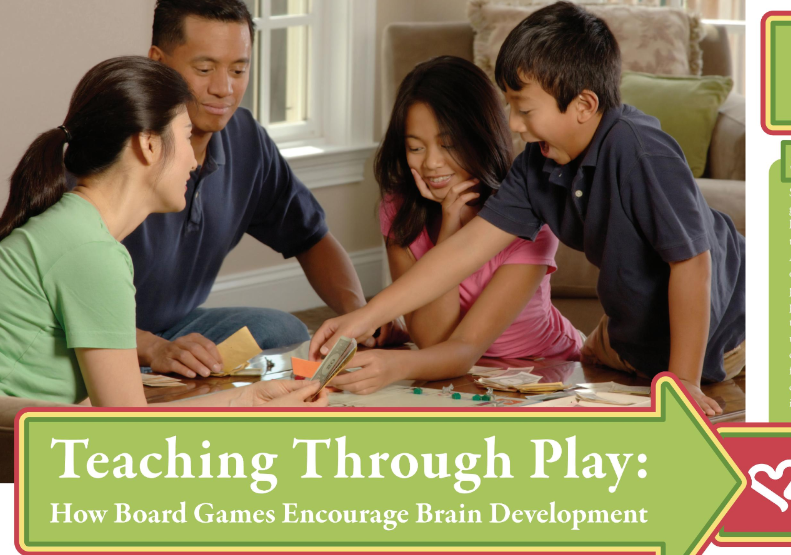In our overscheduled lives, taking time for a family game night may seem like a luxury. But while we take this bonding time to play with our children we are not only making warm memories with them. We’re also helping their brains develop in surprising ways. A 2008 study from Germany found that children who were given an extra hour of chess per week had an increased ability in basic math skills over their counterparts who were given an extra hour of traditional math instruction. Some homeschoolers have already realized the many benefits of board games and rely heavily on them to educate their children.
Math Skills
As the study from Germany demonstrated, math skills learned during board games may be even more beneficial than doing actual homework! But it’s not only chess that improves children’s math ability. They get practice counting points or board movements in all sorts of games. Other games, such as Yatzee also teach patterns such as those on the dice. Recognizing the patterns on dice helps children learn to count both quickly and accurately as explicitly taught in most schools in first grade. Additionally, children actually begin to learn about probability as they roll the dice or spin the spinner in many games.
Even the simplest board game can reinforce math skills. During the game of Chutes and Ladders, for example, children are beginning to internalize the idea of going back and forth on a number line as well as recognizing the patterns on the dice and the numerals on the board.
Social skills
Social skills are an integral part of playing board games. Children begin with the very basics of learning to take a turn and give a turn. This helps them gain patience as they wait for other players. As they grow, they can begin to internalize a sense of fairness from board games. Will the youngest player get to go first? How does it make other people feel if someone cheats? What does it mean to be a good sport? These types of questions come up frequently when playing board games and help children understand what it means to treat someone fairly and be treated fairly. Board games also foster communication skills as players discuss whose turn it is, their plans for their next move, and strategy.
Critical thinking
Board games can also foster critical thinking skills. More advanced games such as Risk and Clue have greater opportunity for this type of thinking. In these more complicated games children must use advance planning to decide how they will make their moves to have the best chance of winning. Games such as Battleship and Stratego require deductive reasoning as players attempt to analyze each other’s strategy.
Language and vocabulary
Some games such as Scrabble or Balderdash are obvious choices for building vocabulary. In Scrabble children practice dictionary skills when they challenge an opponent. But even board games with less of a language focus can teach new words. Not only are children gaining language skills negotiating with fellow players, but the very playing pieces and boards can offer chances to expand vocabulary. Clue, for example, hosts a lounge, a conservatory and a billiard room, rooms that probably aren’t present in a child’s day to day life experience. Board games may also encourage reading as children read the rules of the game or read off a card they have drawn on their turn.
Spatial skills
Certain games such as Blokus, Kaboom and Jenga expand children’s special skills as they build, balance and explore how game pieces fit together.
If board games are already a part of your family night, you can count on the fact that these are hours well spent. If you are not yet playing games as a family, you may want to consider it. The advantages are many and are all accomplished while having fun and connecting as a family.

